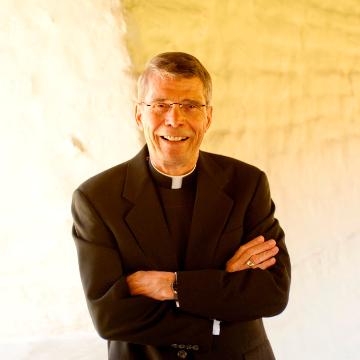
Poetry vs. The Silicon Chip
Can poems live and prosper inside our frenzied air of technology?
Of course they can.
There is a myth that the world of technology and the world of poetry are a universe apart
There is a myth that the world of technology and the world of poetry are a universe apart, that those who engineer our latest computer advances are unable to breathe the rarified air of Mount Olympus, and those who write for and read Poetry magazine sit befuddled, and turn to stone, when confronted with a computer glitch.
This myth is given special credence in hubs like Silicon Valley, or Austin, Texas, where young people, especially, are nurtured on silicon; digital devices are their teddy bears, smartphones are their security blankets. But those hubs have influenced the work of every classroom and the lives of every housewife and insurance broker. We all live in front of a computer.
As a teacher I was convinced that every student should experience the joy of a poem. So for several years, I taught a seminar in poetry to computer, mechanical and electrical engineers. I confined the course to engineers because I wanted to ease their fear of poetry and to show them they could actually enjoy it. I wanted to break down the barriers that all of us, in some form or another, build inside ourselves. And this particular barrier is a hard one to break through for the many people who are genetically ordained toward the intricacies of technology, who are schooled in it and who hope to construct their lives around it.
And I found that the so-called “nerd” is a caricature.
Admittedly, there are right-brain and left-brain people, those whose natural talents are weighted toward one side or the other. But brains are supple instruments; they need encouragement. My students were unfamiliar with poetry, but that did not mean they were unfamiliar with the process of creation. Or that their imaginations were less active than those of the English majors across the mall. They created computer programs, designed bridges, even constructed cement boats that floated. True, their imaginations zeroed in on elements they could touch and compute and weld, they produced practical solutions to practical problems. They did not deal with the infinite possibilities of language. They did not deal with the metaphor of bridging; they dealt with the bridge itself.
writing a poem is like digging a ditch. The line has to be a certain length; it has to fit together with other lines; it takes sweat to make it right
However, a professor of mine once said that writing a poem is like digging a ditch. The line has to be a certain length; it has to fit together with other lines; it takes sweat to make it right. In other words, imagination is the catapult that sets the images soaring, but then there’s the hard, practical work of ensuring that each piece fits together to form a unified whole.
When my students realized that poetry is not some kind of automatic free-for-all in the use of language, they began successfully to analyze the parts: why this length of line, is this metaphor appropriate? And out of eighteen students, inevitably three or four discovered they could write poetry. It was a happy and surprising revelation for them. Poetry can, and does, erupt anywhere.
But each one of them discovered favorite poems that touched a chord in their hearts.
For poetry deals with the human heart. Its intensity and music, its wisdom, its pain and joy, reach into the depths of our lives and help us discover what it means to be human. And whether we’re in Silicon Valley or on a mountain top in the Alps, we are all human, with emotions that need to be expressed; indeed, emotions find their most lasting expression in beauty, whether it’s the triumphant Golden Gate Bridge or Hart Crane’s monumental poem, “The Bridge.” Both speak of spirit.
And all of my students had plenty of spirit.
Oct 29, 2014

